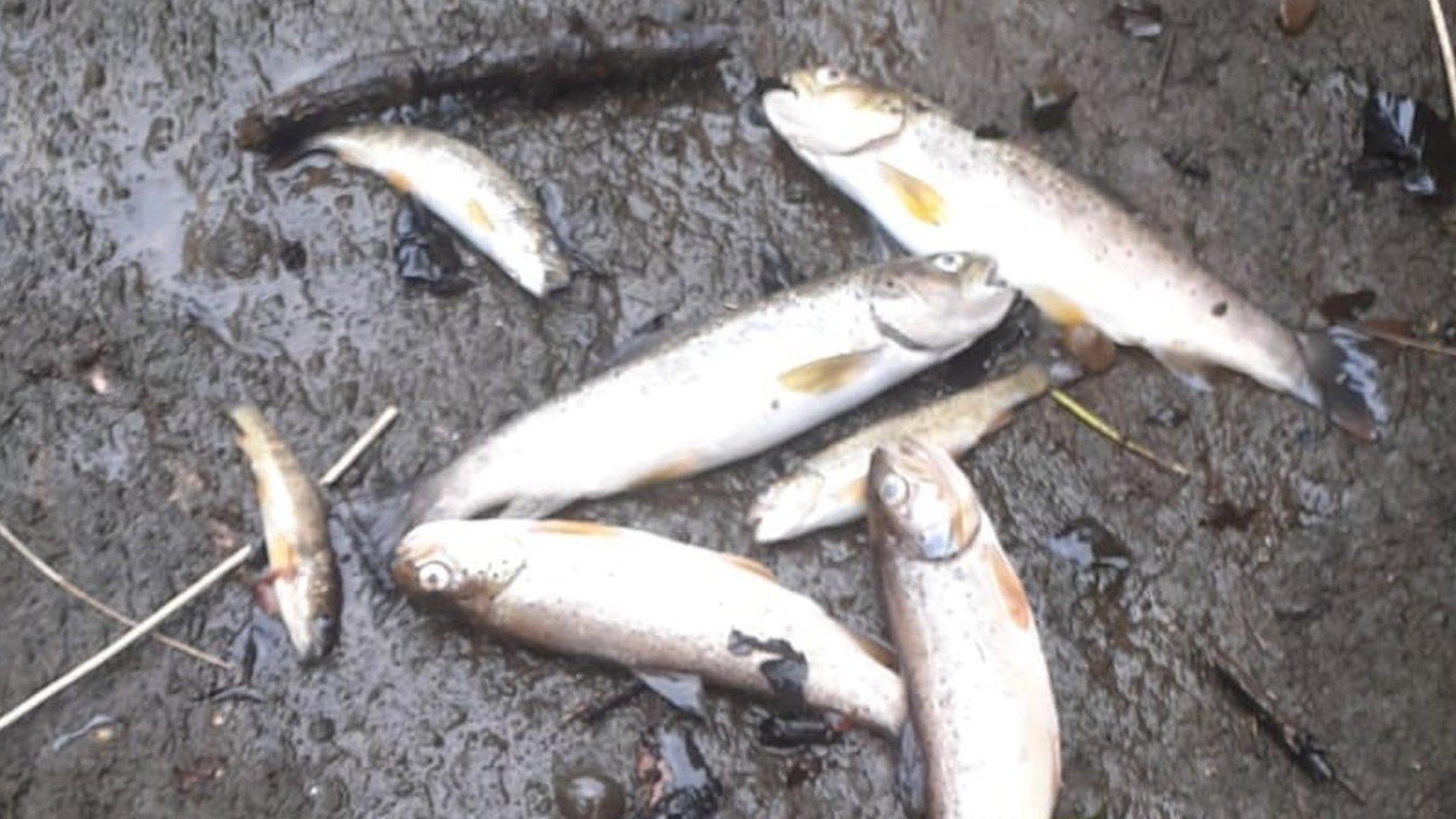Crumlin River: Anglers concerned about fish kill
- Published
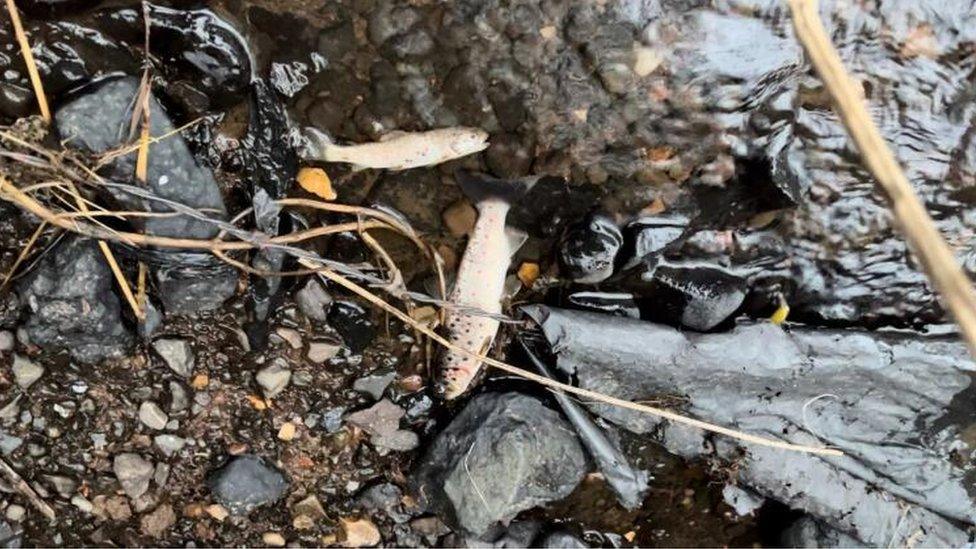
Dead fish were seen floating in the Crumlin River on Sunday
Anglers in Country Antrim are concerned about a major fish kill on the Crumlin River after reports of slurry polluting the water.
The eight-mile (13km) stretch that runs through Crumlin town is known for its wild brown trout, as well as dollaghan and salmon fry.
The alarm about water pollution was raised on Sunday at about 11:00 GMT.
The Northern Ireland Environment Agency (NIEA) confirmed the fish kill and said it was investigating.
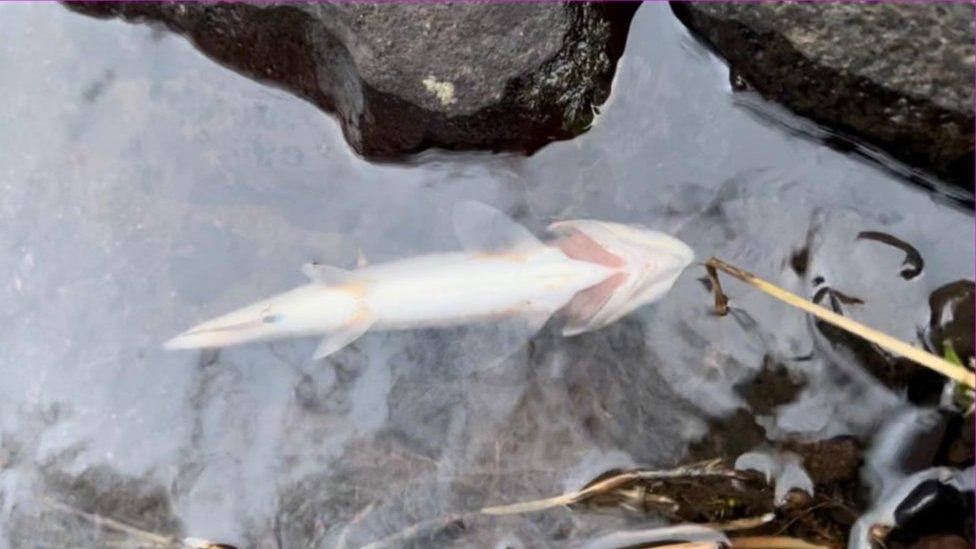
An investigation into the fish kill is being led by environmental officials
It said that it received a report on Sunday morning indicating there was slurry in the river upstream of Crumlin.
"NIEA deployed a water quality inspector to the area to confirm the report and to assess the environmental impact," said the NIEA.
"A fish kill has now been confirmed... and a joint investigation with the Department of Agriculture, Environment and Rural Affairs (Daera) Inland Fisheries remains ongoing."
David Kennedy from Crumlin and District Angling Association said he was alerted about a potential slurry spill which could have serious consequences on Sunday afternoon.
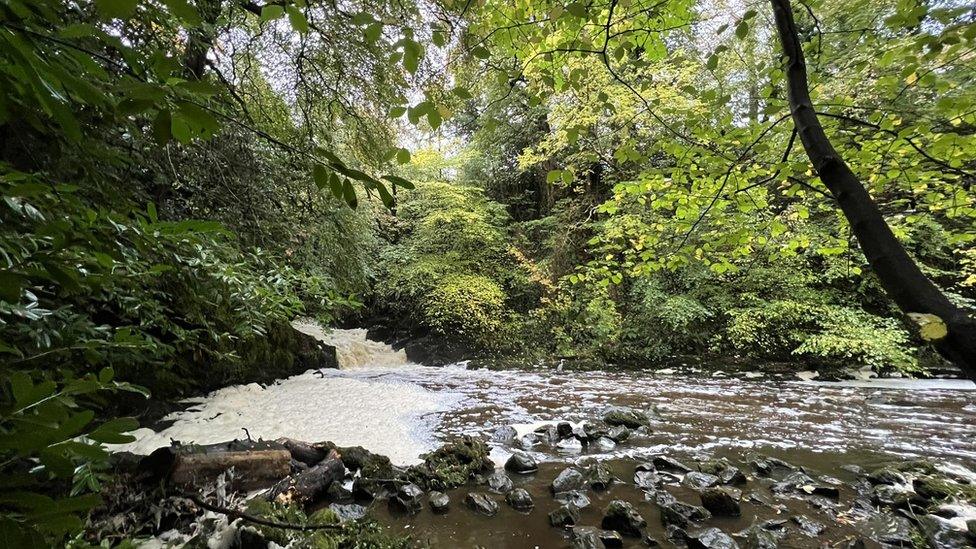
The Crumlin River runs from the Belfast hills into Lough Neagh
He went immediately to the river to establish the extent of the damage.
"We counted about 25 dead fish in a stretch of about 50 metres of water. So potentially there could be hundreds killed," he said.
"The water is chocolate brown which means you cannot see the dead fish when they go belly up."
"The river is starting to clear at the top but we have had two weeks of no rain and the danger is that the slurry doesn't move through quickly enough; it deoxygenates the water and the fish suffocate."
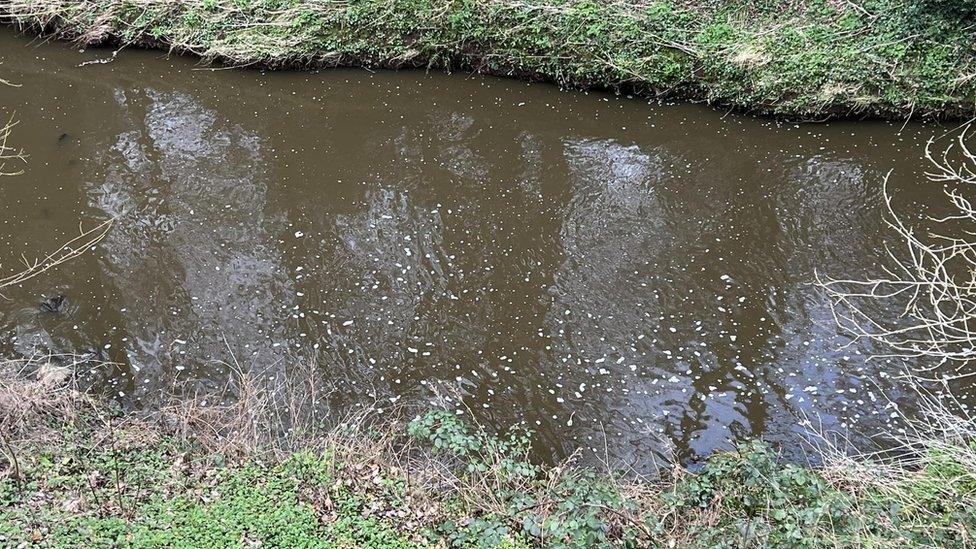
David Kennedy said the river was "chocolate brown"
Mr Kennedy said there was a danger of the whole year of spawning being destroyed in this one incident.
The Crumlin River runs from its source in the Belfast hills, passing through Crumlin town on the way to Lough Neagh.
This is the first fish kill incident on the river in over a decade, Mr Kennedy added.
"It's a live investigation. Our concern is that this has happened and that it happens too often on our rivers."
Related topics
- Published28 August 2021
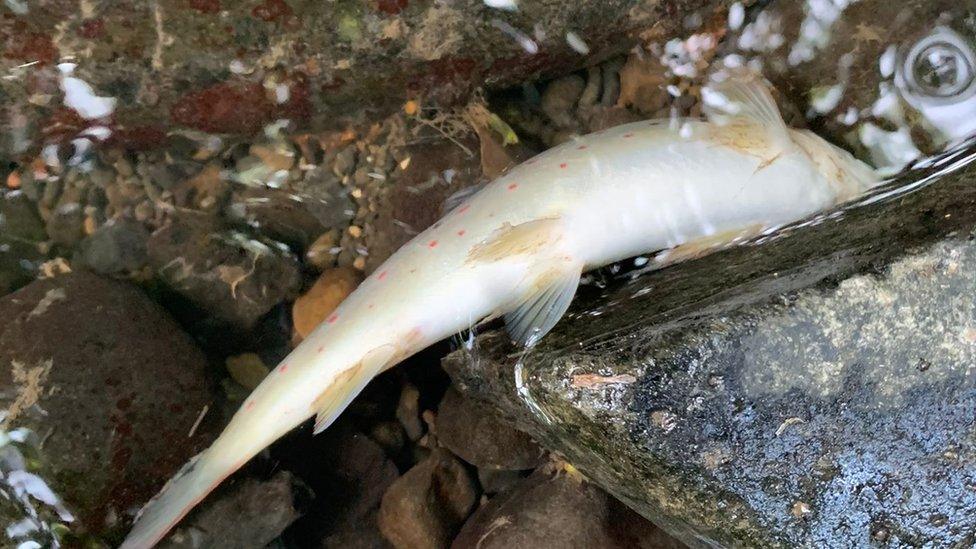
- Published30 March 2022
